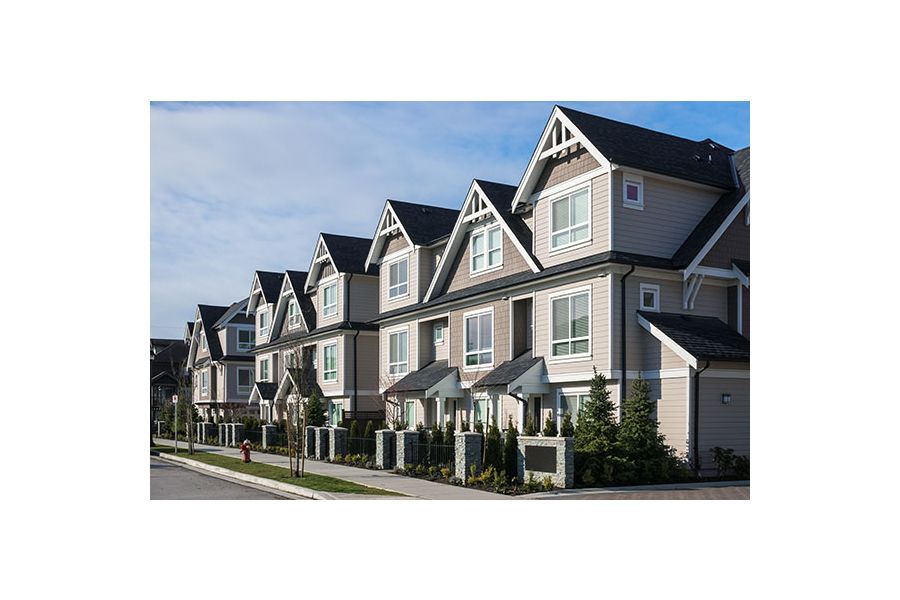Pick the Perfect Unit

Thinking about buying a townhome, condo, or other multifamily residence? Attached home living can offer a lot of perks, including little to no upkeep required and not having to worry about leaf and snow removal. But choosing a unit without giving serious thought to its placement within the building can result in serious buyer’s remorse.
Consider the risks when you share walls with neighbors in a multifamily development: pick the wrong spot, and unwanted noise, ugly views, privacy problems, and more may plague you.
“With single-family detached homes, at worst you have a neighbor who’s noisy or whose property is an eyesore. But if you own a condo with a neighbor above who’s training for a tap-dancing competition, you’re going to go insane,” says Chris Taylor, broker with Boston-based Advantage Real Estate.
Picking a unit prudently is essential, agrees Genevieve Wilner, agent with Monument Sotheby’s International Realty in Baltimore, “not only to ensure that you’re happy living there, but to get the best resale value when it comes time to sell.”
Adriana Mollica, Realtor with Teles Properties in Beverly Hills, has several criteria she asks her attached home shopper clients to ponder carefully, including:
• Accessibility – Think twice about a unit that’s a far walk from your parking spot and resident amenities.
• Common walls – Corner unit condos and end-of-group townhomes are more private and desirable.
• What’s above and below – Top floors are pricey but preferred because no one lives above you. Avoid living directly below a common area like a rooftop deck or directly above a high-traffic noise nuisance such as a garage gate.
• Outward exposure and views – Windows, balconies, patios, or terraces facing south are ideal for maximum sun exposure. Vistas of nature, parks, scenic grounds, or open space are coveted, while views of streets, highways, building exteriors, a cemetery, or some public eyesore are not.
“In addition, pay attention to the condition of the common areas and building exterior,” Mollica says. “Purchasing a unit that is completely beautiful and renovated on the inside but located within a building that looks like it’s slowly deteriorating is not a good investment.”
Leave no stone unturned, notes Wilner.
“Remember that higher floors may have more desirable views, but may also have a significantly longer elevator ride,” she says. “People with dogs or limited mobility may find a ground floor unit near the lobby best suits their needs. And those who want more privacy may need to add window treatments to a ground floor unit and should look closely at the unit’s balcony, which may abut neighboring balconies.”
Prepare to pay a lot more for coveted addresses like a corner unit, penthouse condo, or end-of-group townhome – sometimes 40 percent more (or higher) than a typical unit, Wilner says.
In the Washington D.C. area, “each floor you go up can add $5,000 to $10,000 to the unit’s price, and reserved indoor parking alone can cost $20,000 to $50,000 extra,” says Robyn Porter, Realtor with W.C. & A.N. Miller in Bethesda, Md., who recommends passing on units situated near the trash chute, laundry room, building front door, elevator or that face another building.
Also, give pause to homeowners/condo association rules that may make it difficult for you to make improvements inside your residence, throw a party, or resolve a dispute with a neighbor.
“Ask to see the association’s bylaws and documents so you understand what’s allowed and not allowed,” Taylor says. “Find out what you need to abide by when making alterations to your property. What regulations are in place to handle noise disturbances or privacy issues? How are common area repairs determined? Are there predetermined quiet hours or restrictions on smoking or excessive visitors?”
Lastly, when touring the unit and building, aim for a few return visits so you can view it at different times of the day.
“If you see a unit at 1 p.m. on a Wednesday, chances are most people will be at work. Try to also see it after regular working hours and on weekend to determine if the neighbors will be noisier at night and on days off,” Taylor adds.
Copyright © CTW Features